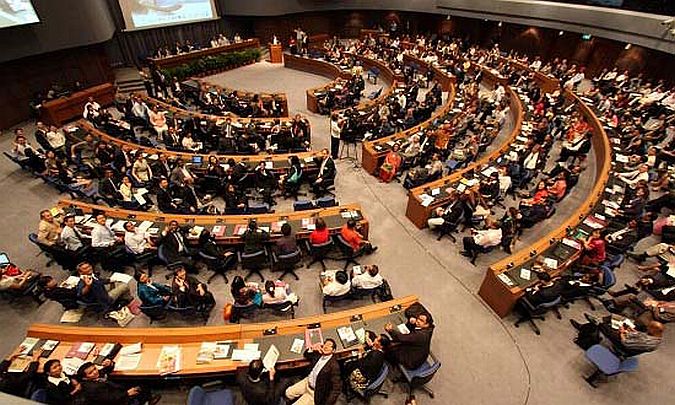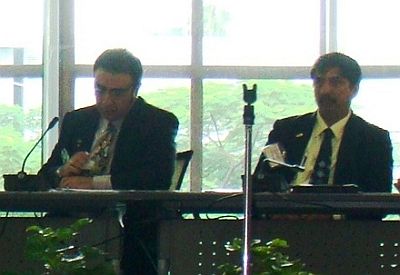Organized by the Regional Climate Change Knowledge Platform for Asia
(Adaptation Knowledge Platform) and the Asia Pacific Adaptation Network
(Adaptation Network), the event brought together more than 500
participants from across the Asia-Pacific region, including government
representatives, researchers, practitioners, NGOs, international
organizations, regional intergovernmental bodies, media and the private
sector.
The Forum 2010’s central theme was “Mainstreaming Adaptation into
Development Planning”. Organizers said the event provided an
opportunity for professionals to share practices, knowledge and
experiences on mainstreaming adaptation to climate change into
development planning in Asia and the Pacific.
The Forum was inaugurated by Mr. Young‐Woo Park,Regional Director and
Representative for Asia and the Pacific for the United Nations
Environment Programme (UNEP); and saw addresses by H.E. Virachai
Virameteekul, the Minister of Science and Technology for Thailand; H.E.
Staffan Tillander, the Swedish Climate Ambassador; H.E. Faumunia Tiatia
Liuga,Minister of Natural Resources and Environment for Samoa; Ms.
Ursula Schaefer‐Preuss, Vice President of Knowledge Management and
Sustainable Development at the Asian Development Bank (ADB) and a video
message from UNEP Executive Director Dr. Achim Steiner,
AIT President Prof. Said Irandoust served as the moderator in one of
the key thematic discussions on “Role of Science in Adaptive
Development”. Prof. Sudip K. Rakshit, Vice President for Research,
served as a panelist and shared some of his thoughts on the uncertainty
in vulnerability assessment and the need to go forward with adaptation.
Prof. Rakshit stressed the need for trans-disciplinary groups working
within the science community while working with colleagues from social
science and economists. He highlighted the barriers for adaptation
science, as compared to mitigation, in terms of its dimensions and
working with policy makers, and local communities.
Ms. Leena Wokeck, Director CSR Asia Center at AIT, also served as a
panelist for the session titled “Financing Adaptation and Aid
Effectiveness”. She called on the private sector to include corporate
social responsibility strategically into all its activities and
cautioned to not view CSR as merely philanthropic contributions.
The AIT Center of Excellence on Sustainable Development in the Context
of Climate Change (SDCC) also had a presence, disseminating its latest
public information as well literature of other signature projects and
programs at AIT, such as the Wetland Alliance Programme, the Yunus
Center at AIT, and a few specific projects including water resource
management.
The AIT-United Nations Environment Programme Regional Resource Center,
Asia Pacific (AIT-UNEP RRC.AP), along with partners Institute for
Global Environment Strategis (IGES), the Stockholm
Environment Institute (SEI)
and the United Nations Development Programme (UNDP), played a key
organizing role.
The Adaptation Knowledge Platform has been jointly established by
AIT-UNEP RRC.AP, SEI, the Swedish Environmental Secretariat for Asia
(SENSA) and UNEP with finding
support from the Swedish International Development Cooperation Agency
(Sida).
The Adaptation Network is facilitated by UNEP, IGES, AIT-UNEP RRC.AP,
and the Asian Development Bank in partnership with other key actors in
the region. The Forum was supported by Sida, the Swedish Environment
Secretariat in Asia (SENSA), the Asia Pacific Adaptation Network
(APAN), ADB and the governments of Japan and Thailand.
.


